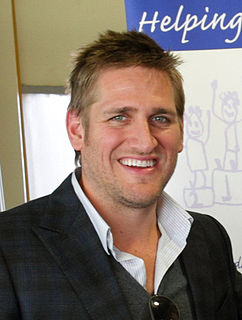A Quote by Jim Butcher
You don't explain to the janitorial staff how your company is a part of a sinister organization with goals of global infiltration and control. You just tell them to clean the floor.
Related Quotes
You simply can't be tentative in a startup. You have to go for it at every chance you get. And if the leader of the organization is anxious, his or her fear pervades the organization. Everything comes from the top in a company. So if you are starting a company or building one, face your fears and move past them. It's critically important to your company.
Many companies operate from more of a command-and-control environment - they decide what's going to happen at headquarters and have the organization execute. That doesn't work here because it's the community of users who really have control.
So we enable, not direct. We think of our customers as people, not wallets. And that has implications for how we run the company. We partner with our customers and let them take the company where they think it's best utilized.
Great leaders in our study treated their people like partners in the organization. That meant they created for their people a sense of connection by teaching them how their jobs impact the larger organization. And they showed them growth opportunities, how they can grow and develop with the company.
The path to achieving your goals, as an entrepreneur or as part of a company, is just as important as reaching them. That's something I hope men can see as well. If you're going to be stepping on people to get there, that's not good. It doesn't matter if you get there if you leave a path of destroyed people behind you.
You've got to be committed. It comes down to setting yourself goals as an individual. In rugby you have team goals that you strive for, but you also set yourself simple goals that are achievable. It helps to write them down so you understand what you need to do, and what your focus is. Put them on your wall, then each time you wake up, you'll see them. Then you can just tick them off once you've achieved them.
You can control yourself if you really want to. I'll tell you how I know you can control yourself. If you were in a full fledged emotional temper tantrum in your house and I knocked on your front door..... Come on! Let me tell you what, you would get control of yourself, and it would only take a few seconds.
In any bureaucratic organization there will be two kinds of people: those who work to further the actual goals of the organization, and those who work for the organization itself. Examples in education would be teachers who work and sacrifice to teach children, vs. union representative who work to protect any teacher including the most incompetent. The Iron Law states that in all cases, the second type of person will always gain control of the organization, and will always write the rules under which the organization functions.
How do I control my emotions? How do I stop getting angry so often, or how do I stop being sad? And I think there's a really important distinction to understand is that you can't completely control your emotions. What you control is your reaction to your own emotions. And a lot of people don't ever make that separation for what goes on with them.


































